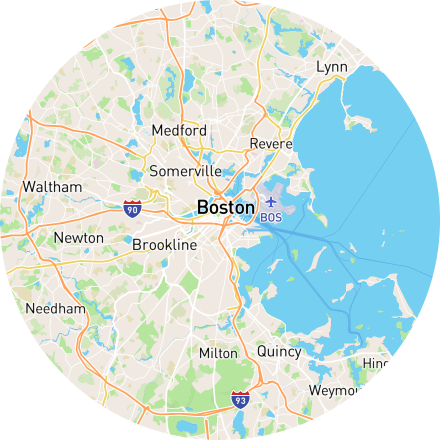Fair Housing Law and Lead
Fair Housing Law and Lead
What is Fair Housing?
Fair housing is a set of principles and laws that mandate equal access and opportunity in housing. Fair housing covers all housing-related activities, from search and application to amenities, management policies, terms and conditions plus termination of tenancy. Fair housing covers persons who are members of a protected class which are designated as groups of persons and their families that historically have experienced discrimination. In Massachusetts, those classes are race, religion, national origin, gender, disability, familial status, marital status, sexual orientation, public assistance (including rental vouchers), genetic information, and military status.
Who must follow fair housing laws?
Property owners, developers, condo associations, and homeowner associations are covered parties under fair housing laws. Their employees, such as property managers, clerical staff, maintenance workers and all others are responsible for performing their duties in a manner consistent with fair housing. Attorneys and real estate agents must act and advise their clients in a compliant manner. Other residents in the building or development can be held responsible under fair housing laws and regulations if their behavior is considered to be discriminatory. Developers, architects and contractors can be held liable under the accessible design and construction fair housing mandates for units built for persons with disabilities and their families
What is the MA “lead law”?
Massachusetts’ law mandates that in any residential property built prior to 1978 in which a child under 6 years of age or a pregnant woman resides must be lead safe. If there is lead in such a unit, the property owner must delead in a manner acceptable under this law.
What is the connection between fair housing and lead laws?
Under both state and federal fair housing laws, it is illegal to deny someone housing based on familial status. If a property owner denies housing to a family because they have children age 6 or under or due to the pregnancy of a family member because they believe or know that there is lead in the unit and/or the common areas, it would be a considered a fair housing violation. The Massachusetts lead and fair housing laws require that residential properties that are not lead safe be deleaded to allow equal access and opportunity for such families.
If the concern is the safety of the children or the pregnant woman, is that still considered fair housing discrimination?
The fair housing laws do not require that there be an actual intention to discriminate for a violation to be determined. It is the actions, not the intent, good or otherwise, that will be the focus of the fair housing investigation. Concerns regarding the health of the family members are best resolved through making the unit and common areas lead safe.
Where can I go to learn more about my lead-safe responsibilities?
The Massachusetts Department of Public Health provides many fact sheets on lead poisoning. You can contact Massachusetts Department of Public Health at (617) 624-6000 (voice) or 617-6001 (TTY).
Are there financial resources available to help delead?
There is financial assistance available through the Get the Lead Out Program administered by MassHousing. The Consumer Hotline for MassHousing is (888) 843-6432 (voice) or (617) 854-1025 (TTY). You also can contact the community development department or housing agency for your city or town. Those numbers can be located in the community services pages of your telephone book.
Who is eligible for deleading financial assistance?
There are four categories of eligible borrowers in this program:
Owner-occupants whose income does not exceed MassHousing home mortgage program income limits.
Owner-occupants earning between current MassHousing income limits and up to 150 percent of area median income (AMI) with a lead-poisoned child as determined by the Massachusetts Department of Public Health.
Investor-owners who rent their property to income-eligible tenants who do not exceed 150 percent of AMI.
Nonprofit organizations that own properties and rent to income-eligible tenants.
Are all residential properties eligible for de-leading funds?
The Get the Lead Out program will only cover single-family homes and multi-family residential buildings of 2 to 4 units.
Are there resources that provide additional information on fair housing?
- Housing and Urban Development Fair Housing & Equal Opportunity
- Department of Justice
- Fair Housing Accessibility FIRST
- MA Commission Against Discrimination
- MA Attorney General’s Office
Does Metro Housing|Boston provide assistance to property owners on fair housing?
Yes, you can contact the Metro Housing|Boston Fair Housing Manager at (617) 425-6681 for technical assistance.
For help with fair housing matter please contact the Fair Housing Project by email at fairhousing@metrohousingboston.org or call (617) 425-6681.

Communities we serve
Metro Housing|Boston serves individuals and families, as well property owners, in 30 communities throughout Greater Boston.
- Arlington
- Bedford
- Belmont
- Boston
- Braintree
- Brookline
- Burlington
- Cambridge
- Chelsea
- Everett
- Lexington
- Lynn*
- Malden
- Medford
- Melrose
- Milton
- Newton
- North Reading
- Quincy
- Reading
- Revere
- Somerville
- Stoneham
- Wakefield
- Waltham
- Watertown
- Wilmington
- Winchester
- Winthrop
- Woburn
*Metro Housing|Boston does not administer RAFT, Voucher Programs, or HomeBASE assistance in Lynn. See Lynn Housing Authority.
*In addition to the 30 communities listed above, Metro Housing|Boston administers rental voucher programs in Holbrook, Randolph, and Weymouth. If you are specifically seeking RAFT assistance in those communities,
you must apply instead to Housing Solutions. (http://housingsolutionssema.org).